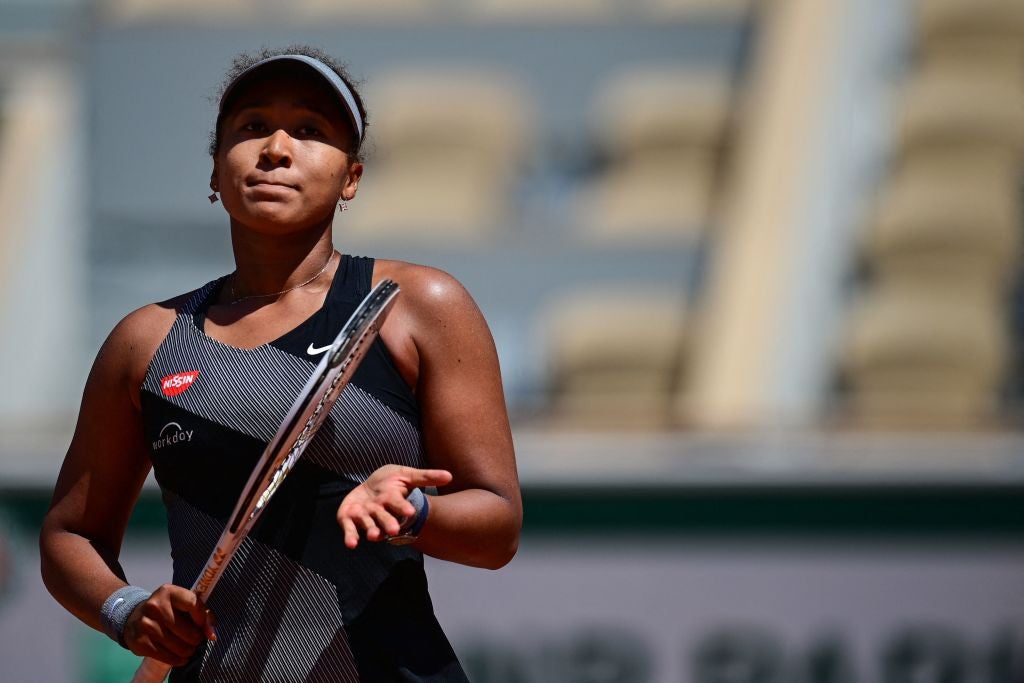‘It’s OK to not be OK’ - Naomi Osaka ready to return at Tokyo Olympics after ‘self care’
Many sports stars spoke out in favour and support of Osaka’s choice in France

Your support helps us to tell the story
From reproductive rights to climate change to Big Tech, The Independent is on the ground when the story is developing. Whether it's investigating the financials of Elon Musk's pro-Trump PAC or producing our latest documentary, 'The A Word', which shines a light on the American women fighting for reproductive rights, we know how important it is to parse out the facts from the messaging.
At such a critical moment in US history, we need reporters on the ground. Your donation allows us to keep sending journalists to speak to both sides of the story.
The Independent is trusted by Americans across the entire political spectrum. And unlike many other quality news outlets, we choose not to lock Americans out of our reporting and analysis with paywalls. We believe quality journalism should be available to everyone, paid for by those who can afford it.
Your support makes all the difference.World number two Naomi Osaka said she was under immense pressure to disclose more details when she stepped away from the French Open for a mental health break, but is now ready to make Japan proud at the Tokyo Olympics.
Osaka stunned the tennis world when she quit the claycourt major last month after being fined and threatened with expulsion for declining to face media after her first match.
While the 23-year-old maintains a good relationship with journalists, she hopes the tennis world can respect mental health issues - just like any other workplace.
“It’s OK to not be OK, and it’s OK to not talk about it,” Osaka wrote in an essay for Time Magazine.
“I communicated that I wanted to skip press conferences at Roland Garros to exercise self-care and preservation of my mental health. I stand by that. Athletes are humans.”
Athletes should be allowed to occasionally skip media scrutiny for their mental wellbeing, she said.
“In my case, I felt under a great amount of pressure to disclose my symptoms - frankly because the press and the tournament did not believe me. I do not wish that on anyone.”
Traditional news conferences, where rows of journalists pepper sometimes highly personal questions at athletes often minutes after intense highs or lows in competition, were out of date, Osaka said.
“I believe that we can make it better, more interesting and more enjoyable for each side. Less subject vs. object. More peer to peer,” she said.
Osaka’s French Open exit led to an outpouring of support from fellow tennis professionals and other athletes from Venus and Serena Williams to Formula One champion Lewis Hamilton and former Olympic sprint champion Usain Bolt.
She was particularly inspired by encouragement from American swimmer Michael Phelps, the most decorated Olympian.
“Michael Phelps told me that by speaking up I may have saved a life. If that’s true, then it was all worth it,” she said.
After skipping Wimbledon, four-times major champion Osaka is focused on a successful return at the Olympics on home soil.
“An Olympic Games itself is special, but to have the opportunity to play in front of the Japanese fans is a dream come true,” Osaka said. “I hope I can make them proud.”
Reuters
Join our commenting forum
Join thought-provoking conversations, follow other Independent readers and see their replies
Comments